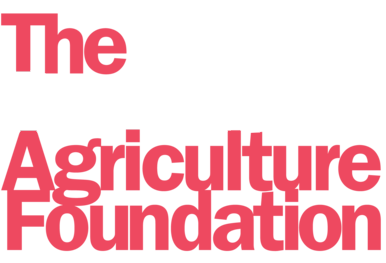The Stress Farmers Are Facing With Avian Influenza
Many farmers in Eastern Canada are facing the stress of another event, this time, it is Avian Influenza (AI) also known as the bird flu. Amy VanderHeide a chicken farmer from Nova Scotia and a director of The Do More Agriculture Foundation shares her experience, the added stress of new protocols, the increased uncertainty, and what this could mean for her and the Canadian poultry industry.
How will this affect protocol?
Canadian chicken farmers are required to follow the third-party audited Raised by a Canadian Farmer On Farm Food Safety and Animal Care Program. This means that we all have “gold star” biosecurity protocols in place to protect the health and safety of our flocks. However, much like we’ve seen with Covid-19, Avian Influenza is highly contagious and can sneak through even the most stringent measures.
After living with the unknown of a pandemic for 2 years, wondering how our own health will be affected and how that could impact our farms, we’re now faced with it all over again with AI. The worry is always there at the back of your mind that you could be hit with it at any time. Although Avian Influenza isn’t necessarily a new threat, now that it's closer to home, it adds an extra level of stress, both by carrying around the worry and for those who are impacted by cases, it increases the workload for the whole team. The increased paperwork and increased communication with our veterinarians, etc. can really add to the threat of burnout. It has really emphasized the need to check on each other and make sure we are relying on those around us for mental health support.
What are your biggest concerns about the situation, besides of course the safety of your animals?
There are lots of concerns at the farm level with the looming threat of Avian Influenza. Including but not limited to the ease of spread (AI is now in wild bird populations) and doing our best to make sure we are not unintentionally bringing it in or out of our farms. Things like making sure our family members and/or staff understand the seriousness of the situation are also important, as well as keeping the lines of communication open. Then there are the concerns that include the financial impacts and what supports are in place to help regain any lost income or expenses that are related to the impact of Avian Influenza.
How are you taking care of your mental health during this time?
We try to be very open about how we are feeling in our house, when AI cases showed up we made sure we kept talking about any fears or concerns we had and made a plan for the farm that made us feel as confident as we could about the measures we put in place. Farmers, in general, undergo many stresses in the run of a year from unstable markets, increasing costs, and unpredictable weather. So this feeling of the unknown wasn't completely new to us. From a mental health standpoint, it's a good reminder to make sure we are talking about it and that we take breaks when we need them.
For me, that is taking a time out. It can be going for a walk, taking the kids for ice cream, finding solitude in a book, signing off of all screens and devices or making a lunch date with a friend. Something that removes me from the situation even if it's just for an hour or so. Those minutes add up and can make all the difference in the day.
How can someone support you right now?
As with many of our stressors, it's important to remember that we aren’t alone in them. We are often isolated on our farms due to geography and/or workload, we are also currently isolated due to the pandemic and now on top of everything else we’re facing another isolating factor with Avian Influenza. It's important for farmers to remember that once again, we are in this together, even though we may be physically far apart. Along with your normal support people, there are other farmers who are willing to talk it out, many commodity associations, marketing boards, provincial organizations and other industry supporters have resources available to you. Don’t be afraid to reach out if you are feeling overwhelmed.
Like Amy, many in Eastern Canada are facing the stress and challenges of Avian Influenza. The fear of flocks being infected even with all the biosecurity protocols in place is heavy and real as infection often results in the loss of the entire flock and risk of AI spreading to neighboring farms. As uncertainty looms, please remember we are in this together and that there is no shame in reaching out for additional support or for utilizing a helpline.
If you or someone you know needs support, you can find agriculture-specific resources at domore.ag/crisis-contacts. To learn more about Avian Influenza, from the Canadian Food Inspection Agency visit their website here.
Crisis Lines:
Nova Scotia -
Mental Health Crisis Telephone Line - 888.429.8167
Farm Family Support Center - 844.880.9142
Ontario -
Farmer Wellness Initiative - 866.267.6255
